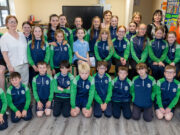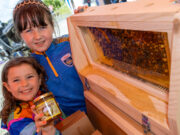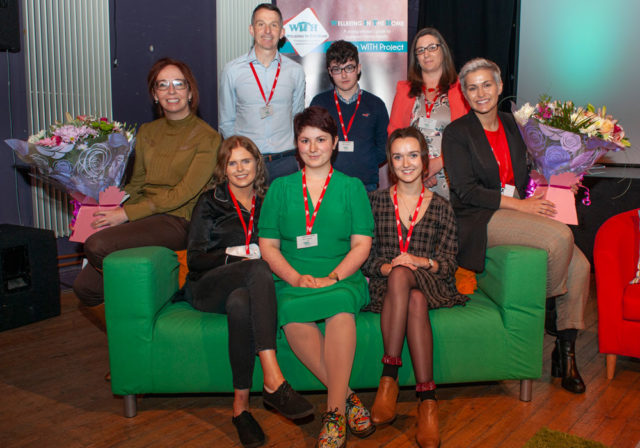A NEW online resource to help young people deal with parental mental health has been launched across Ireland.
The WITH project (Wellbeing In The Home) is a collaborative project between Mayo Child and Adolescent Mental Health Services (CAMHS), Mindspace Mayo, young people representing Mindspace and Comhairle na nÓg.
It is now available to young people in Laois – and all over the country.
The resource was developed under the guidance of people who share the experience of living in families where mental illness is a part of family life, and also in conjunction with service providers in the mental health field.
Information can now be accessed via YouTube.
The WITH project idea was first developed by Dr Sharyn Byrne (Senior Clinical Psychologist in the Castlebar CAMHS service) following research and statistics that revealed the prevalence of parental mental health distress and its potential impact on children and young people.
“At least 10-15% of children and young people will experience parental Mental Health at some point in their young lives,” says Dr Byrne.
“All the research points to the protective nature of information for this cohort; it helps them to understand what it is they’re experiencing, how they are not causal and therefore prevents them from internalising the distress and affecting their developing self-concepts.”
Dr Byrne found there were very few resources nationally, hence the idea to develop an online resource for children and young people who live with the daily (or occasional) impacts of parental Mental Health distress.
Dr Byrne linked with Peadar Gardiner (Project Manager of Mindspace Mayo) and, together, they set up Focus Groups with young people who represented CAMHS, Comhairle na nOige and the Mindspace Youth Panel.
“The result is that we now have a much-needed young person’s guide to parental mental health,” Dr Byrne continues. “And we have established this in conjunction with a group of young people who were enthusiastic about helping.
“As a clinician with CAMHS for almost seven years, I work with children and young people on a daily basis that experience mental health distress,” Dr Byrne added.
“In a recent audit (late 2019) of data, I found that of the children and young people attending CAMHS, almost one out of two had a parent with a known Mental Health difficulty.
“International figures are one in three children attending services.
“Almost 64% have a mum with MH difficulties, just over 20% a dad with MH difficulties, and 15% of our children and young people attending CAMHS have both parents who experience distress.”
Dr Byrne adds that, typically, young children use their parents and guardians as secure bases from which they can enter the world and return to if the world gets too challenging.
“However, if mum or dad’s presence and availability to the child is compromised because of distress they are experiencing within themselves, then their availability to their children will also be compromised,” she points out.
“If this is a pervasive issue for the child, they can develop fear in their systems; sometimes it reduces their motivation to explore the world and their trust in themselves.
“In some cases, children and young people can develop Attachment Disorders, an unwillingness to separate from parents and a seeking of closeness to reassure themselves that ‘all is ok’.
“This can also sometimes lead to the child not attending school or extracurricular activities, which are actually very important for their resilience and development of their sense of self.
“I have worked with young people who have found their parents after an attempted suicide. Such a trauma for the young people will lead to a pervasive sense of the world being potentially unsafe, leading to symptoms of generalised and relational anxieties that can be crippling.”
Dr Byrne points out that the WITH project has produced the first ever online resource for children and young people in Ireland who experience parental mental health distress.
“It is an informational forum for young people that is very accessible,” she outlines.
“It outlines the various MH difficulties parents can experience and the possible effect of these on the children.
“The WITH youth group are the actors in the video series and present the information in an understandable and relatable way. Videos also outline how recovery can be achieved for the parent, what supports parents can access and what the young person can do to increase their resilience.
“We want this resource to get to as many young people as possible in Ireland as international research indicates that as many as 10-15% children are affected by this issue.”
SEE ALSO – ‘Fianna Fail got no mandate to govern ‘ says elected Sean Fleming






















